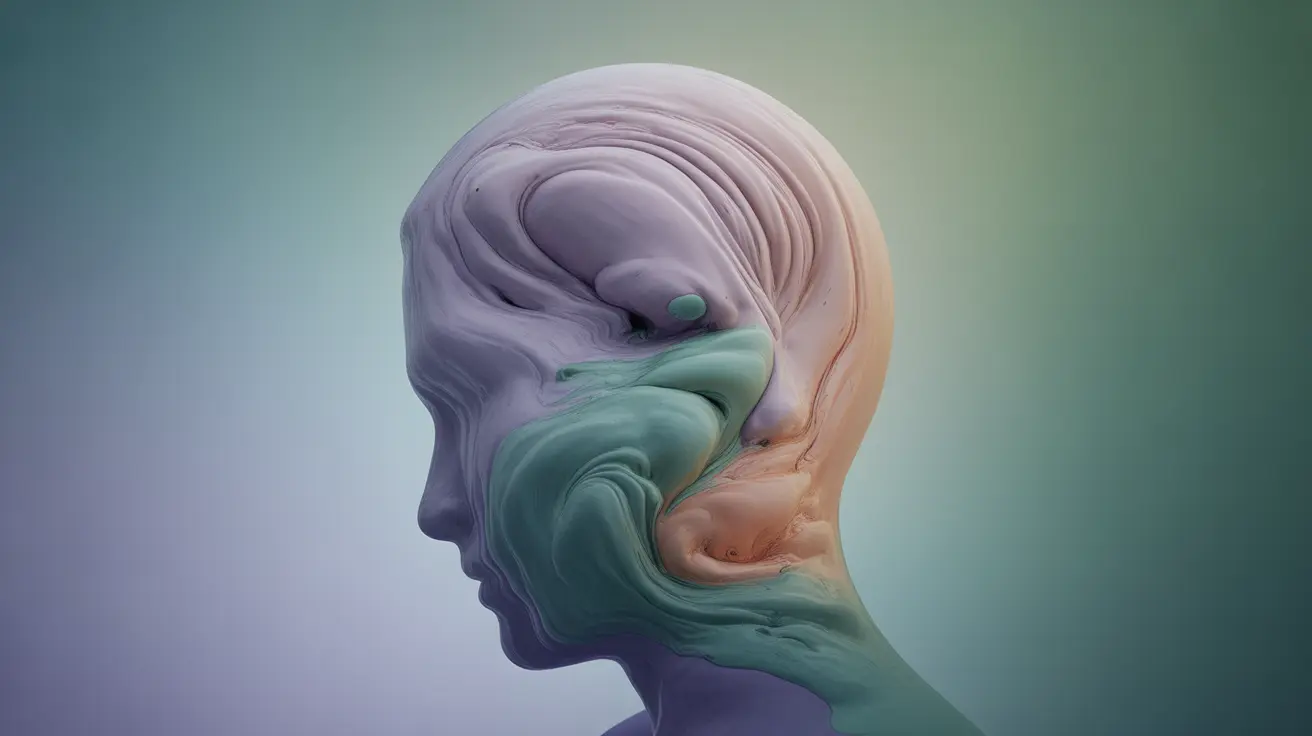Anxiety is more than just feeling stressed or worried – it's a complex mental health condition that affects millions of people worldwide. While occasional anxiety is a normal part of life, persistent or overwhelming anxiety may signal an anxiety disorder that requires professional attention and treatment.
Understanding the difference between normal anxiety and an anxiety disorder is crucial for seeking appropriate help and managing symptoms effectively. This comprehensive guide explores the key aspects of anxiety, from recognizing symptoms to finding effective treatment options.
Recognizing Anxiety Symptoms
Anxiety manifests through various physical and psychological symptoms that can significantly impact daily life. Common indicators include:
- Persistent worry or fear
- Restlessness or feeling "on edge"
- Difficulty concentrating
- Racing thoughts
- Sleep disturbances
- Muscle tension
- Rapid heartbeat
- Sweating
- Shortness of breath
When these symptoms persist for extended periods and interfere with daily activities, they may indicate an anxiety disorder rather than typical stress responses.
The Diagnostic Process
Healthcare professionals use several methods to diagnose anxiety disorders accurately. The process typically involves:
Physical Examination
Doctors often begin with a physical exam to rule out medical conditions that might cause anxiety-like symptoms.
Psychological Evaluation
Mental health professionals conduct detailed assessments using standardized diagnostic criteria and may use specific screening tools to evaluate symptoms and their severity.
Laboratory Tests
While no specific test can diagnose anxiety, healthcare providers may order blood work or other tests to exclude physical conditions that could contribute to symptoms.
Treatment Approaches
Psychotherapy
Cognitive Behavioral Therapy (CBT) stands out as one of the most effective treatments for anxiety disorders. This structured approach helps individuals identify and change negative thought patterns and behaviors, developing practical coping strategies.
Medication Options
Several types of medications can help manage anxiety symptoms:
- Selective Serotonin Reuptake Inhibitors (SSRIs)
- Serotonin-Norepinephrine Reuptake Inhibitors (SNRIs)
- Anti-anxiety medications (benzodiazepines)
- Beta-blockers
Lifestyle Modifications for Anxiety Management
Incorporating healthy lifestyle changes can significantly impact anxiety levels:
Exercise and Physical Activity
Regular physical activity releases endorphins, natural mood elevators that can help reduce anxiety symptoms. Even moderate exercise like walking can make a difference.
Mindfulness and Relaxation Techniques
Practices such as meditation, deep breathing exercises, and progressive muscle relaxation can help manage anxiety symptoms and promote overall mental well-being.
Healthy Sleep Habits
Maintaining consistent sleep patterns and practicing good sleep hygiene can help reduce anxiety symptoms and improve overall mental health.
Risk Factors and Causes
Understanding what contributes to anxiety disorders can help in prevention and management:
- Genetic predisposition
- Environmental factors
- Trauma or significant life changes
- Chronic medical conditions
- Substance use
- Personality traits
Frequently Asked Questions
- What are the common symptoms that indicate I might have an anxiety disorder rather than normal stress?
Anxiety disorder symptoms typically persist for six months or longer and include excessive worry, restlessness, difficulty concentrating, sleep problems, and physical symptoms like rapid heartbeat and sweating. These symptoms significantly impact daily functioning, unlike normal stress responses.
- How is anxiety diagnosed by healthcare professionals and what tests are involved?
Healthcare professionals diagnose anxiety through comprehensive evaluations including physical examinations, psychological assessments, and sometimes laboratory tests to rule out other conditions. They use standardized diagnostic criteria and may employ screening tools to assess symptom severity.
- What treatment options are available for anxiety disorders and how effective is cognitive behavioral therapy (CBT)?
Treatment options include psychotherapy (particularly CBT), medications, or a combination of both. CBT is highly effective, helping 60-75% of patients achieve significant improvement by teaching them to identify and change negative thought patterns and develop coping strategies.
- Can lifestyle changes like mindfulness, yoga, or exercise help reduce anxiety symptoms?
Yes, lifestyle modifications can significantly help manage anxiety symptoms. Regular exercise, mindfulness practices, yoga, and meditation have been shown to reduce anxiety levels. These activities help regulate stress hormones and promote relaxation.
- What are the main causes and risk factors that contribute to the development of anxiety disorders?
Anxiety disorders develop from a complex interaction of genetic, environmental, and personality factors. Risk factors include family history of anxiety or other mental health conditions, exposure to stressful or traumatic events, certain medical conditions, and specific personality traits like perfectionism or high sensitivity.




